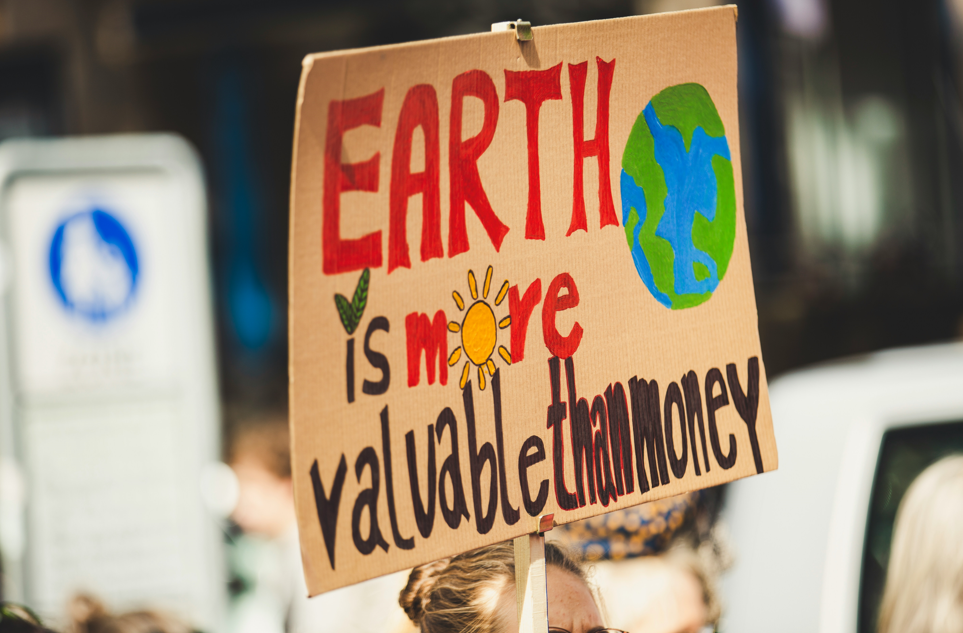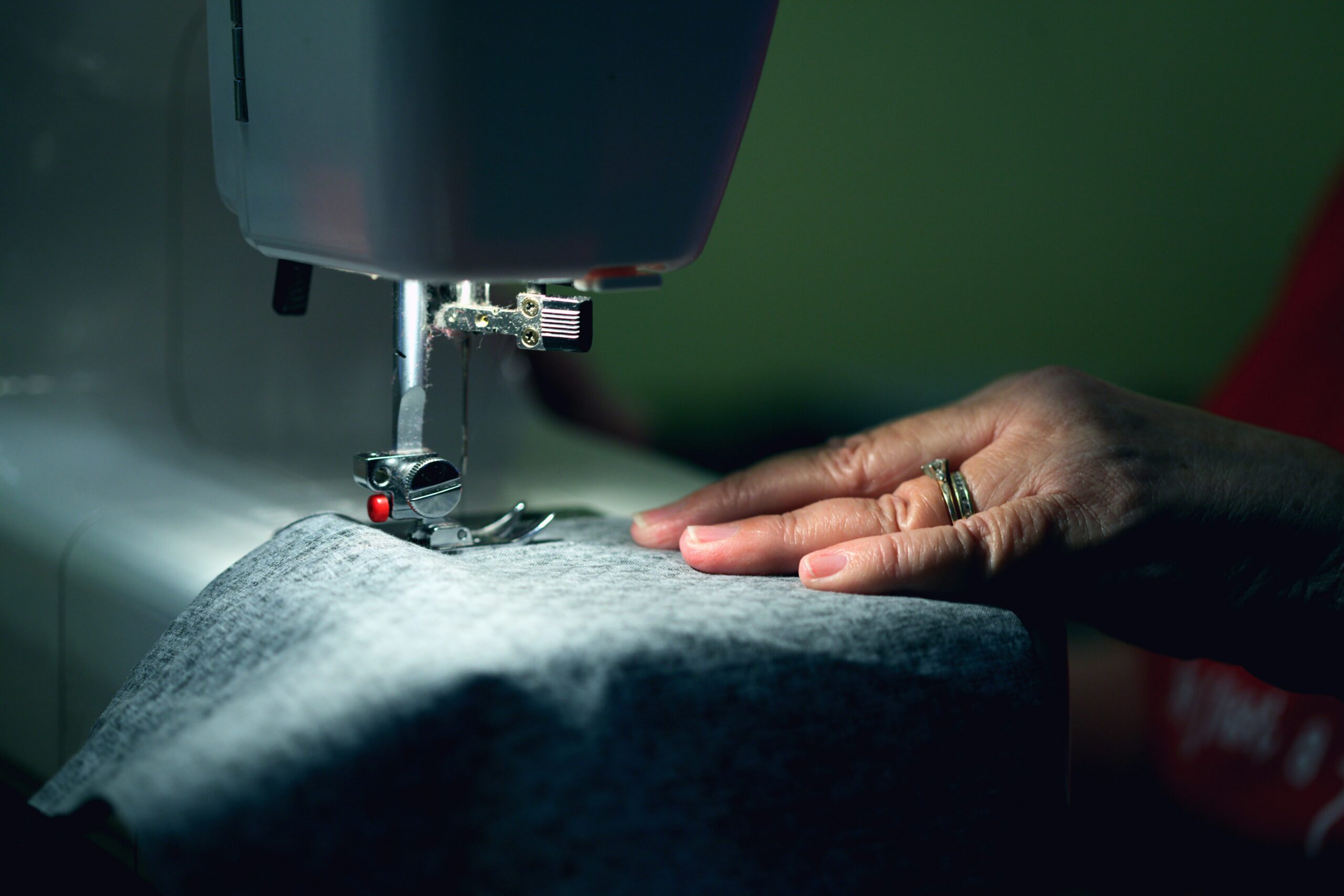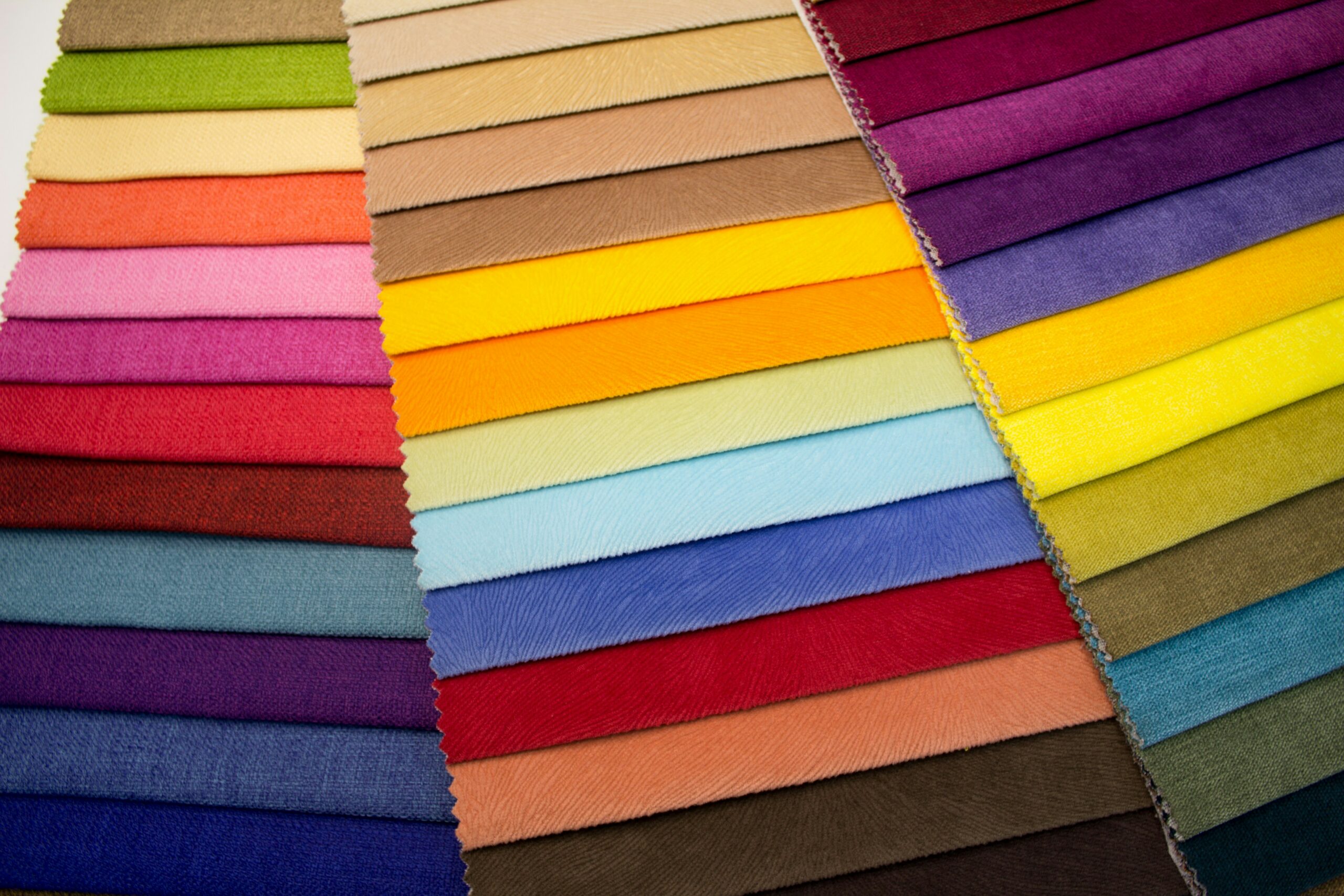1. Introduction
Sustainable fabrics play a crucial role in reducing environmental impact and promoting eco-friendly practices in the textile industry. With growing concerns over textile waste, single-use plastic, and harmful chemicals, choosing the right raw material for making bags can make a significant difference. This guide explores the best sustainable fabrics, their properties, and their role in eco-friendly bag manufacturing.
2. What Are Sustainable Fabrics?
Sustainable fabrics are environmentally friendly materials produced with minimal waste, using ethical concerns as a priority. These fabrics often come from recycled materials, organic sources, or biodegradable raw materials that leave less waste behind.
3. The Importance of Sustainable Materials in Bag Manufacturing
Making bags from sustainable materials not only helps reduce textile waste but also ensures a closed-loop system that gives a second life to waste fabric. This approach helps minimize virgin polyester production, which consumes more resources and generates more waste products.
4. Best Sustainable Fabrics for Eco-Friendly Bags
4.1 Organic Cotton
Organic cotton is grown without harmful pesticides, making it a non-toxic and environmentally friendly alternative to conventional cotton. It biodegrades naturally and is a durable fabric suitable for long-lasting bags.
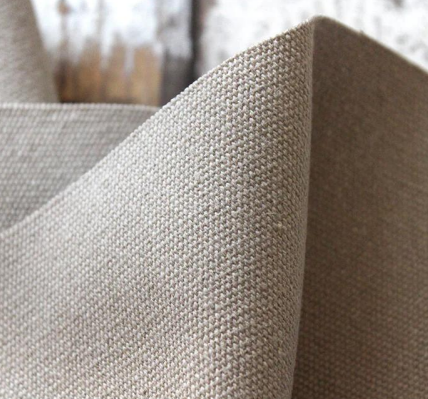
4.2 Recycled Cotton
Recycled cotton repurposes post-consumer cotton waste and reduces the need for virgin cotton production. This sustainable option gives second life to discarded cotton clothing and helps reduce environmental impact. It requires less energy and water compared to conventional cotton production, making it one of the best sustainable fabrics for eco-friendly bags.
4.3 Washable Kraft Paper
Washable kraft paper is an innovative, plant-based material that offers a sustainable alternative to synthetic fabrics. Made from wood pulp, it is durable, lightweight, and biodegradable. It mimics the appearance of leather while remaining environmentally friendly. Washable kraft paper is increasingly being used in bag manufacturing due to its strength, flexibility, and ability to be washed without losing integrity. Recycled cotton repurposes post-consumer cotton waste and reduces the need for virgin cotton production. This sustainable option gives second life to discarded cotton clothing and helps reduce environmental impact.
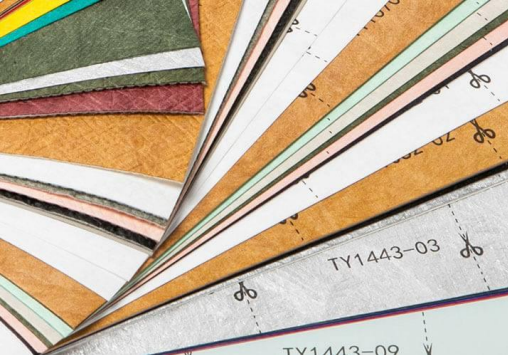
4.3 Recycled Polyester
Recycled polyester (rPET) is made from recycled plastic bottles and post-industrial waste. It requires less energy and reduces dependency on petroleum-based synthetic fabrics.
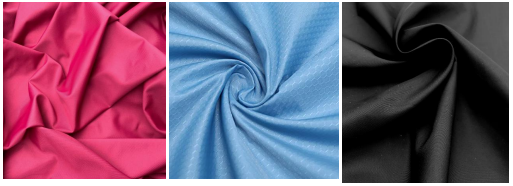
4.4 Hemp Fabric
Hemp fabric, derived from the flax plant, is a durable fabric known for its strength and sustainability. Organic hemp grows quickly without requiring harmful pesticides or excessive water use.
4.5 Bamboo Fabric
Bamboo fabric is a semi-synthetic material made from wood pulp. While it offers eco-friendly benefits, the manufacturing process varies, and some versions involve toxic substances.
4.6 Jute Bags
Jute is a plant-based fiber used to make sturdy and biodegradable bags. It is one of the most sustainable materials available, requiring less energy and water than other fibres.
4.7 Organic Linen
Organic linen, derived from the flax plant, is a breathable and lightweight fabric. Its organic status ensures that it is free from harmful chemicals and meets ethical concerns in production.
4.8 Cork Fabric
Cork fabric is harvested from the cork oak tree without harming the tree itself. It serves as one of the best leather alternatives for sustainable bags.
4.9 Recycled Nylon
Recycled nylon is made from post-consumer waste such as discarded fishing nets. It helps prevent ocean pollution while offering a strong and durable alternative to virgin nylon.
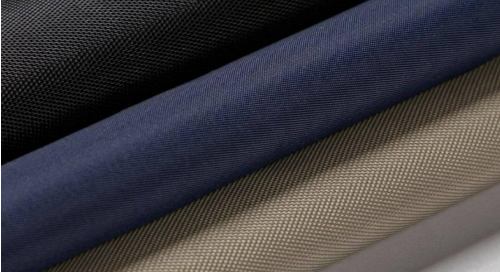
4.10 Recycled Faux Leather
Recycled faux leather is an eco-friendly alternative to traditional leather, made from post-industrial waste, recycled plastic, and plant-based materials. Unlike conventional leather, which is linked to the meat industry and harmful chemicals used in tanning, recycled faux leather minimizes environmental impact. This material is durable, water-resistant, and free from toxic substances, making it an excellent choice for sustainable bag manufacturing.
4.11 Recycled TPU
Recycled TPU (thermoplastic polyurethane) is a flexible, durable, and environmentally friendly alternative to virgin plastic. It is often derived from post-industrial and post-consumer waste products, such as discarded plastic components and textiles. Unlike conventional synthetic fabrics, recycled TPU is a sustainable option that reduces the environmental impact of plastic waste. It is widely used in bag manufacturing due to its water-resistant properties, durability, and ability to be recycled multiple times, making it a key player in the closed-loop production system.
4.12 Grass & Paper Material
Grass and paper-based materials are innovative and sustainable options for eco-friendly bag manufacturing. Grass fiber is a plant-based, biodegradable alternative that requires less energy and water compared to traditional textile production. Paper-based fabrics, such as kraft paper and cellulose fiber materials, are made from renewable wood pulp sources. These materials offer a lightweight yet durable option for sustainable bags, combining environmental benefits with functionality. Grass and paper-based materials are innovative and sustainable options for eco-friendly bag manufacturing. Grass fiber is a plant-based, biodegradable alternative that requires less energy and water compared to traditional textile production. Paper-based fabrics, such as kraft paper and cellulose fiber materials, are made from renewable wood pulp sources. These materials offer a lightweight yet durable option for sustainable bags, combining environmental benefits with functionality.
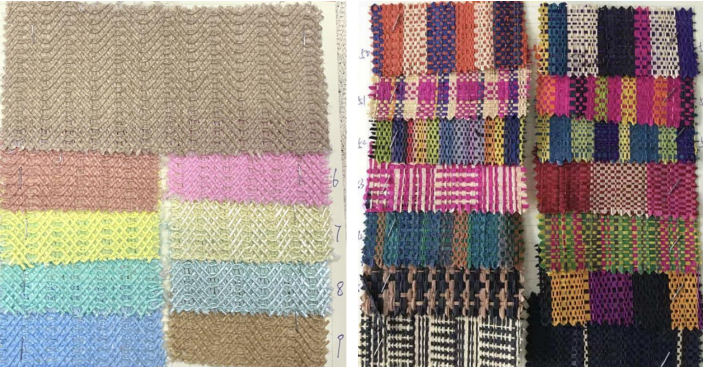
4.13 Biodegradable Packaging
Biodegradable packaging options, such as biodegradable polybags, gift boxes, and stickers, provide sustainable solutions for reducing plastic waste. These eco-friendly materials are made from plant-based sources, recycled paper, or compostable bioplastics that break down naturally without leaving harmful residues. Using biodegradable packaging enhances a brand’s sustainability efforts and minimizes environmental impact in the bag manufacturing industry.
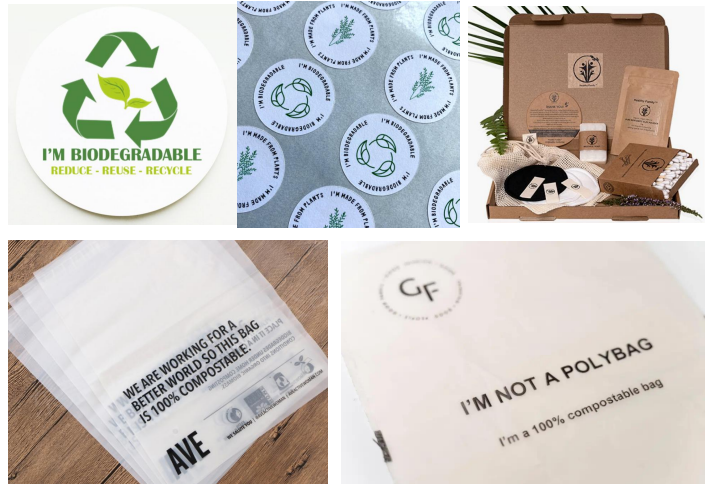
5. The Environmental Impact of Textile Waste
Textile waste contributes significantly to landfills and pollution. Using recycled fabric and eco-friendly materials in clothing and bag production helps minimize waste and promotes a closed-loop manufacturing process.
6. Ethical Concerns in the Meat Industry and Synthetic Fabrics
The leather industry, linked to the meat industry, raises ethical concerns about animal species exploitation. Many brands now opt for leather alternatives, such as recycled plastic and plant-based materials, to address these concerns.
7. The Role of Post-Consumer Waste in Sustainable Fabric Production
Post-consumer waste, including waste fabric and plastic bottles, can be transformed into recycled fabric and eco-friendly bags. This process reduces landfill waste and supports sustainable production.
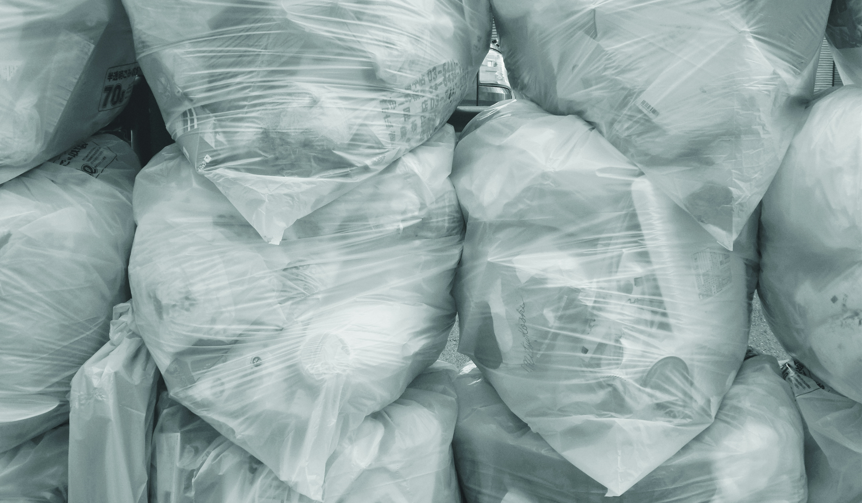
8. Understanding the Manufacturing Process of Sustainable Fabrics
The manufacturing process of sustainable fabrics involves using non-toxic dyes, ethical labor practices, and a closed-loop system to ensure minimal waste and maximum resource efficiency.
9. Leather Alternatives and Plant-Based Materials
Leather alternatives such as cork fabric, recycled plastic, and other plant-based materials provide sustainable options for bags while reducing the demand for animal-derived materials.
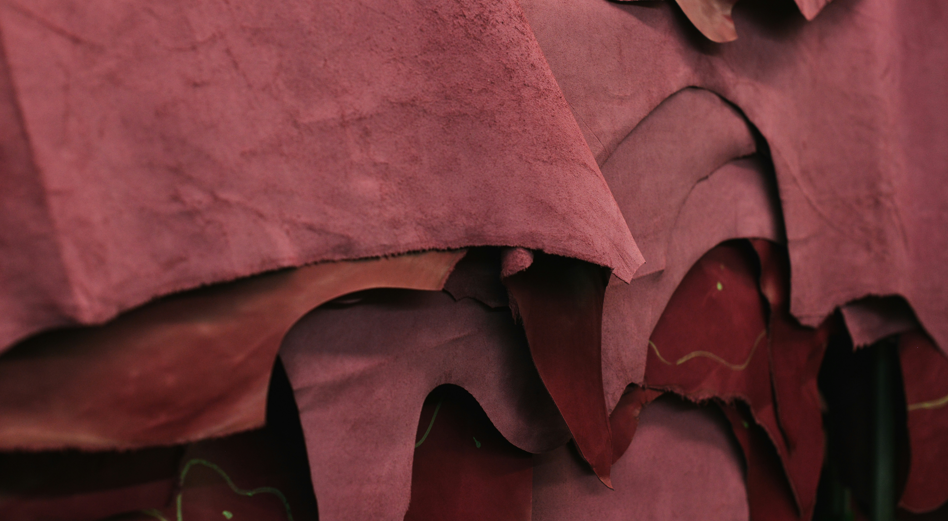
10. The Benefits of a Closed-Loop System in Sustainable Fabric Production
A closed-loop system ensures that waste products are repurposed into new materials, reducing the overall environmental footprint. This approach is essential in achieving true sustainability in textile production.
11. The Impact of Synthetic Fabrics on the Environment
Synthetic fabrics like virgin polyester and nylon contribute to plastic pollution and toxic waste. Switching to recycled fabric or plant-based alternatives helps mitigate this impact.
12. How Recycled Plastic Bottles Are Transformed into Fabric
Recycled plastic bottles are processed into fine fibers to create recycled polyester, a durable fabric that helps reduce reliance on fossil fuel-based materials.

13. The Importance of Using Less Energy in Fabric Production
Choosing sustainable materials that require less energy in their production helps reduce carbon emissions and overall environmental impact.
14. The Role of Waste Products in Sustainable Fabric Innovations
Innovative textile technologies repurpose post-industrial and post-consumer waste into new fabrics, ensuring a sustainable option for eco-friendly bags.
15. The Growing Demand for Eco-Friendly Fabrics in the Fashion Industry
As consumers become more conscious of environmental impact, demand for eco-friendly fabrics in clothing and accessories continues to grow.
16. How to Identify the Most Sustainable Fabrics for Your Brand
Brands should consider factors such as raw material sources, manufacturing processes, and biodegradability when selecting sustainable materials for their products.
17. The Future of Sustainable Fabrics in the Bag Industry
With technological advancements, new materials made from recycled and biodegradable sources will continue to transform the bag industry towards sustainability.
18. Key Takeaways for Choosing Sustainable Fabrics
- Opt for recycled materials to reduce waste fabric
- Choose plant-based and biodegradable fabrics
- Avoid synthetic fabrics that contribute to plastic pollution
- Support ethical and environmentally friendly production practices
19. FAQs About Sustainable Fabrics
Q1: What are the most sustainable fabrics for making bags?
A1: The best sustainable fabrics include organic cotton, recycled polyester, hemp fabric, jute, and bamboo fabric.
Q2: How can I ensure my fabric choice has less environmental impact?
A2: Choose eco-friendly materials with organic certification and avoid harmful chemicals in the production process.
Q3: What is the only difference between organic cotton and conventional cotton?
A3: Organic cotton is grown without harmful pesticides and has an organic status that ensures ethical production practices.
20. Conclusion
Choosing sustainable fabrics is crucial for reducing environmental impact and promoting an eco-friendly lifestyle. By opting for recycled fabric, organic cotton, and other sustainable options, brands can contribute to a more sustainable future in bag manufacturing and beyond.
By integrating sustainable options into the production process, we can create a closed-loop system that benefits both businesses and the environment. The future of bag manufacturing lies in durable, eco-friendly fabrics that support ethical concerns and reduce waste. Making responsible choices today will ensure a greener tomorrow.
